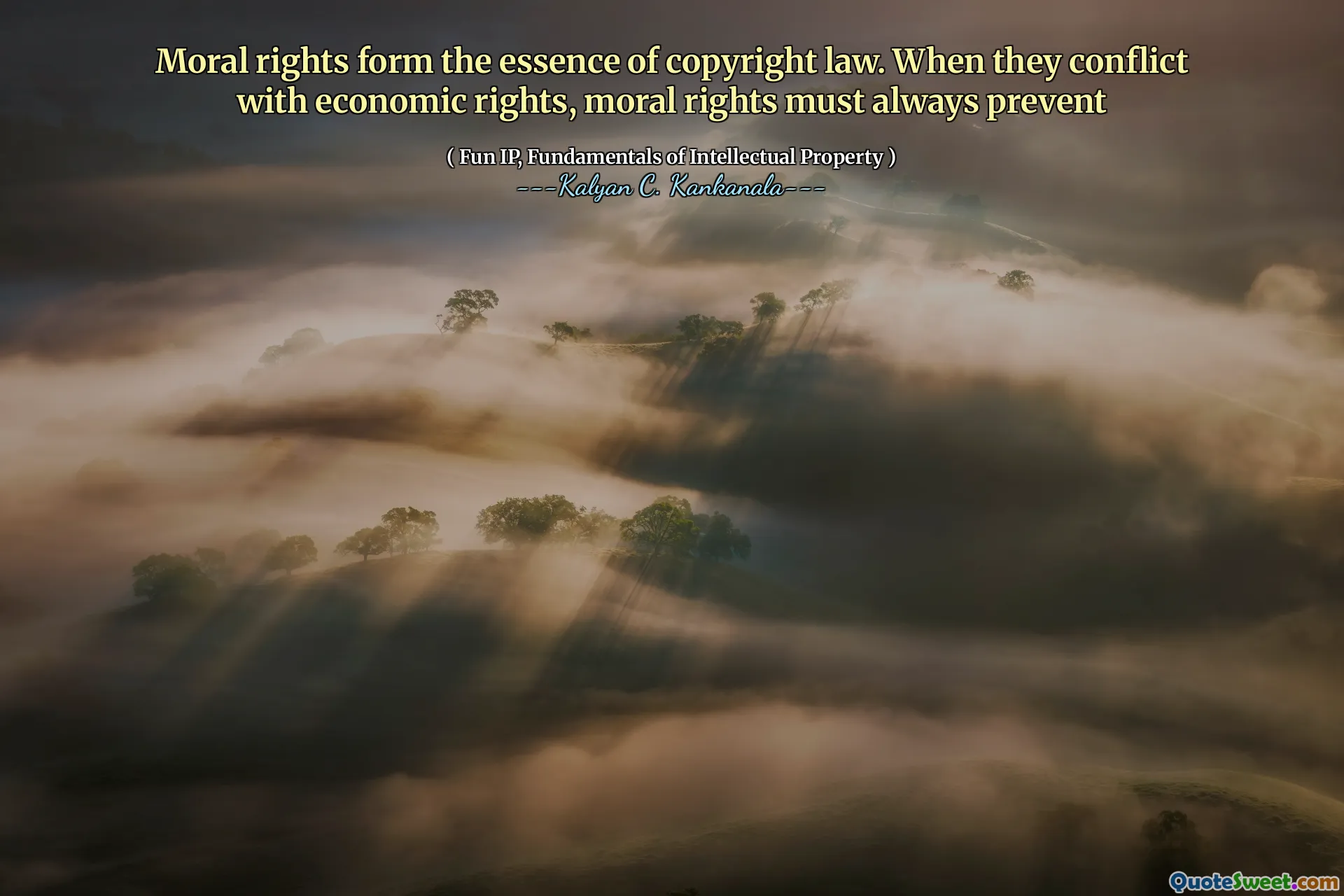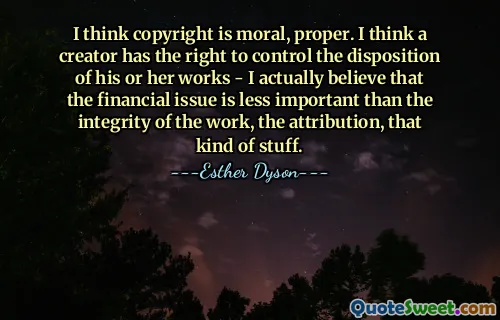
Moral rights form the essence of copyright law. When they conflict with economic rights, moral rights must always prevent
This quote underscores the fundamental importance of moral rights within the realm of copyright law. Moral rights—such as the right to attribution, integrity of the work, and the preservation of the author's reputation—hold a value that extends beyond the mere monetary and commercial aspects of copyright. They embody the moral and personal connection an author or creator has with their work, which often cannot be adequately protected by economic rights alone.
In an ecosystem where economic rights are often prioritized due to their tangible financial benefits—such as revenues from licensing, sales, or distribution—moral rights serve as a safeguard for the creator’s integrity and personal connection to the work. When these rights come into conflict, it is crucial to recognize that the moral rights embody ethical considerations that transcend mere economic interests. For example, altering a work in a way that misrepresents the author or damages their reputation should be prevented, even if such alteration could generate financial gain for someone else.
This perspective aligns with the broader philosophy that intellectual creations are intertwined with the personality and morality of their creators. Protecting moral rights ensures that creative expression remains authentic and respectful of its originator’s intent and integrity. It emphasizes a moral obligation that legal systems should uphold, ensuring creators are not merely seen as economic agents. Instead, they are recognized as individuals whose moral rights must be preserved even when economic interests might suggest otherwise.
The quote invites reflection on the balance of rights in copyright law, advocating for the prioritization of moral rights to protect the dignity and identity of creators. It suggests a legal and ethical stance that moral considerations are fundamental, integral, and non-derogable, forming the core of the moral underpinning of copyright protections.




